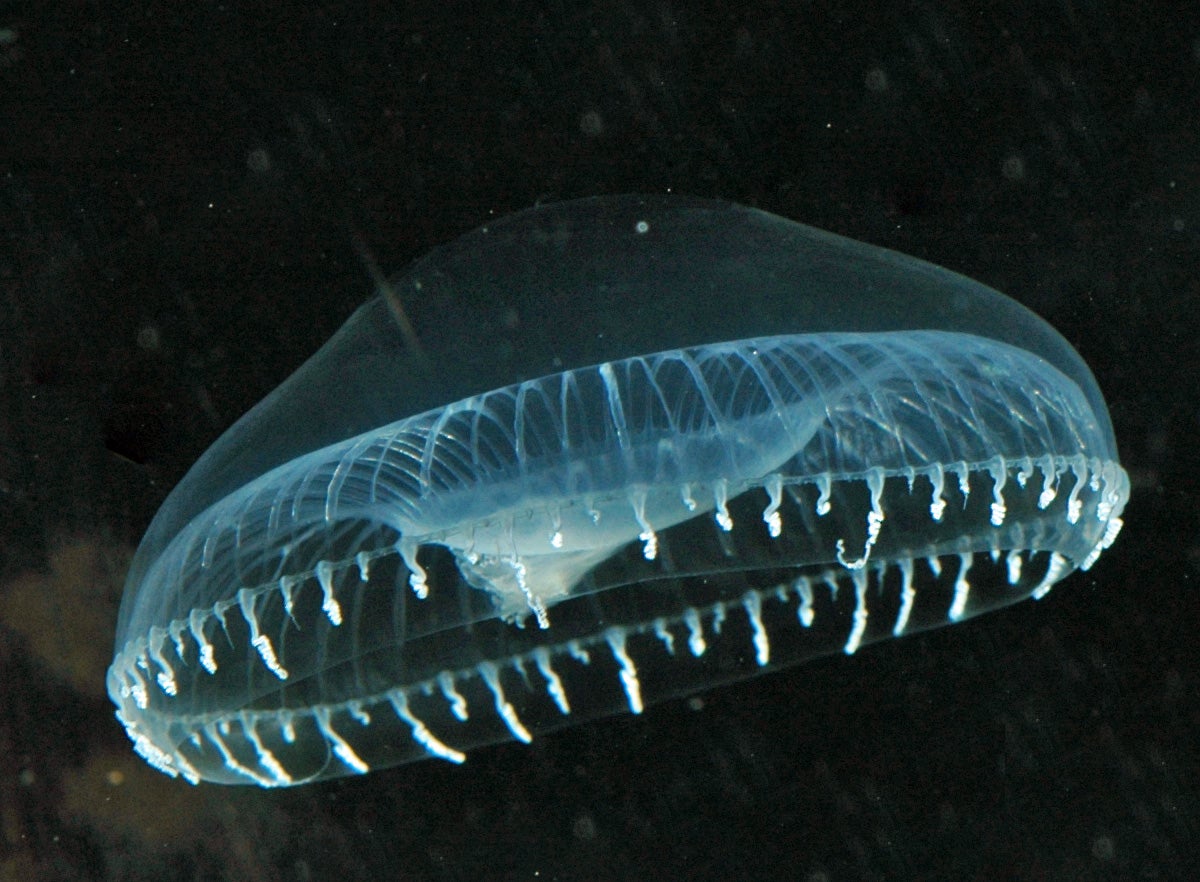Rare crystal jellyfish identified off Cornwall coast
The species is typically found off the west coast of North America
Your support helps us to tell the story
From reproductive rights to climate change to Big Tech, The Independent is on the ground when the story is developing. Whether it's investigating the financials of Elon Musk's pro-Trump PAC or producing our latest documentary, 'The A Word', which shines a light on the American women fighting for reproductive rights, we know how important it is to parse out the facts from the messaging.
At such a critical moment in US history, we need reporters on the ground. Your donation allows us to keep sending journalists to speak to both sides of the story.
The Independent is trusted by Americans across the entire political spectrum. And unlike many other quality news outlets, we choose not to lock Americans out of our reporting and analysis with paywalls. We believe quality journalism should be available to everyone, paid for by those who can afford it.
Your support makes all the difference.A rare type of crystal jellyfish has been identified off the coast of Cornwall.
Commonly known as the crystal jelly, experts have detected a notable increase in the number of Aequorea Victoria in Cornish waters.
The species is typically found off the west coast of North America, identified from the Bering Sea to southern California. It’s particularly common in Puget Sound, an inlet of the Pacific Ocean along the northwestern coast of Washington.

Spotted at Cadgwith on west Conrwall’s Lizard Peninsula, there were also sightings around Alderney and Guernsey in August which experts labelled indicative of “warmer seas.”
Though not strong enough to harm humans, the species does have stinging cells, feeding off plankton including marine plants and animal plankton.
"For some reason, this year, we’ve had a massive influx all along the south coast”, Matt Slater of Cornwall Wildlife Trust told BBC Radio Cornwall.
"I was actually diving last week off the Lizard and there was a huge number of them and they were accumulating in the bays and forming almost a ceiling above us as we were diving underwater."
"There’s either not many or there’s loads. This is because of their life cycle”, Mr Slater added. "They reproduce very rapidly and produce thousands of tiny larvae.”
Now, the team at Plymouth’s Marine Biological Association, which is working on the Darwin Tree of Life Project, haS acquired samples for DNA testing to determine exactly which species is being recorded.
Though it’s been ascertained that the jellyfish belongs to the family Aequorea, the association noted that DNA analysis is the only way to accurately decipher the species.
In February 2022, alarm bells were raised when the poisonous Portuguese Man O’War washed up on a beach in Devon.
The species was sighted on Slapton Sands and Lannacombe Beach. Typically, the jellyfish are blown into the sea via westerly winds, commonly found on the west coast and the shores of the Isle of Scilly and Cornwall.
The Portuguese Man O’War is not typically seen across UK shores in the winter, typically arriving from warmer climates in the Atlantic. Their tentacles can grow up to 50cm in length.






Join our commenting forum
Join thought-provoking conversations, follow other Independent readers and see their replies
Comments